HOPE-A
MEMBERSHIP
NEWS & MEDIA
 |
H2020-NMBP-07-2017 Project Multiscale Modelling and Characterization to Optimize the Manufacturing Processes of Organic Electronics Materials and Devices (CORNET) https://www.cornet-project.eu |
H2020 Project CORNET: Creating tomorrow in Research and Production of Innovative Materials and Products based on Organic Electronics through Open Innovation Environment
CORNET, is an ambitious European Research Program conducted in the framework of H2020-NMBP-07-2017 that develops a European Open Innovation Environment to optimize the production of Organic and Printed Electronics devices. In the framework of CORNET which started in 2018 and ends in 2021, will develop, perhaps for the first time, the communication channels and open access databases to facilitate communication and exchange of data between scientists and researchers, industry representatives and market representatives in general, and institutions responsible for certification and metrology.
As Assistant Professor Argiris Laskarakis, Head of the Organic Electronics Group in Nanotechnology Lab LTFN of the Aristotle University of Thessaloniki (AUTh), explains, «CORNET developed an Innovative database and an Open Innovation Platform through an Open Innovation Environment, where the users can be interconnected with each other as well as with other external stakeholders. One of the first applications that emerge through CORNET's interactive Open Innovation Environment, is the optimization of the production of large-scale Printed Organic Photovoltaics (OPV) for direct application to products. Moreover, CORNET contributes to the creation of new International Standards and Protocols in the characterization and modeling of innovative nanomaterials and devices for OPVs, through interconnection with international Standardization Organizations. Therefore, protocols and methodologies are developed, so that both the research and the production of printed OPVs and other Organic Electronics devices can proceed rapidly at the same time.»
«The main difficulty of the project is the coordination of so many research bodies and companies, which have different starting points and procedures but a common goal. From a technical point of view, the biggest challenge is the confirmation of the theoretical models developed for Organic Electronics devices, and the utilization of the results in order to produce organic electronic devices and especially high quality and high performance Organic Printed Photovoltaic Devices that will be integrated into real applications such as in the Automotive Sector as well as in Agriculture (in the integration of PV in greenhouses)», explains Evangelos Mekeridis, Production & Quality Manager in the company Organic Electronic Technologies (OET), which is one of the main partners of CORNET.
New technologies will make the Energy cheaper and more accessible to all
Professor Ravi Silva of the University of Surrey in the United Kingdom, Director of the Institute of Advanced Technology (ATI) and Head of the Nanoelectronics Center, explains that «Free and cheap energy with the new materials and methods which are being developed at CORNET is no longer a utopia, but an acquisition that will happen soon, at least regarding its scientific part».
“A significant role in the research that was implemented under the CORNET Project has been the study of the behavior of materials in order to create a series of models that are can now be used to facilitate the production process”, said Professor Elefterios Lidorikis, from the Department of Materials Science Engineering at the University of Ioannina, and responsible for this part of the research in the project.
Dr Fernando Castro, Head of Science (Materials) at the National Physical Laboratory, UK, highlights the importance of best practice measurements and protocols in accelerating uptake of emerging technology: “Reproducibility of results is critical to provide confidence and facilitate translation of results from academia to industrial applications. The CORNET project has placed significant emphasis in establishing best practice in measurements and protocols and has sought close engagement with key global institutions such as VAMAS and IEC to help accelerate the development of international standards.” In addition, “the creation of the CORNET Open Innovative Environment and the CORNET database provide a single point of access for best practice information related to manufacturing, modelling and experimentation for organic and printed electronics. It provides a bridge between industry, research centres and academia, which is one of the priorities of the EUROPE 2020 Strategy and the future Horizon Europe.” ».
«Due to COVID 19 we stopped for some weeks our measurements in our company, but also our live meetings", NANOTEXNOLOGY 2020 is the first live conference and exhibition in which I have participated for a long time», emphasized Dr. Camilla Vael from the company FLUXIM AG, which is a partner of the CORNET Consortium.
Automotive applications for Organic Electronic Devices
As Dr. Luca Belforte from CRF, Fiat Chrysler Automobiles states, “The automotive market is facing a major breakthrough in the transition to the electrification. The awareness of climate change and air pollution and the strict European regulation on CO2 emissions are driving this transition. In this scenario, organic devices such as OPVs and OLEDs can have a significant role in energy harvesting and energy saving, but a further development step in necessary to be compliant with industrial requirements. Solar roof panel applications have already entered the automobile market. Many OEMs has installed solar roofs on demo and concept vehicles to increase driving range or simply cool down the car interior, while it is parked under the sun. However, the additional weight needed by the solar roof and the energy storage system can limit or cancel the benefit of energy harvesting. The advantage to have OPVs, that means a flexible photovoltaic film, overcomes many issues related to the use of rigid silicon cells. Nevertheless, the automotive market has very severe requirements and harsh testing conditions that can be hard for an organic based material to pass. This is the reason why CORNET is creating a strong center of excellence on organic materials in Europe by involving world-class experts in manufacturing, multiscale characterization and modelling. Cornet is trying to fill the gap between academic research and industrial applications to speed up the transition to the green economy.”
OLED applications
Dr. Peter Baumann from APEVA SE, Germany, states: “OLEDs have many potential applications. For display applications OLEDs are already a mass market that continues to grow and diversify. As a complete deposition system provider for the organic material layers within the OLED stack, APEVA is targeting this OLED display market. This requires great advances in reliability and control of manufacturing processes. The collaborative work in CORNET is supporting the efforts to further develop and optimize APEVA’s innovative organic vapor phase deposition (OVPD®) technology and processes for the fabrication of OLEDs.”
Database Management and Sustainability Plan
As Dr. Donna Dykeman from Granta Design, United Kingdom, explains, “We work with partners to digitalize their characterization protocols (experimental, modelling methods) to ensure full traceability and transfer of knowledge between actors in the supply chain. One of the biggest challenges of industry is bridging the gap between experimental and modelling work, as these are typically siloed activities. The database system supports both areas of specialization, ensures that all stakeholders can see the same datasets and have the same understanding of terminology and structure, and combines their expertise to arrive at new conclusions. This is especially critical for emerging materials such as Organic Electronics, wherein the decisions made by CORNET partners for how to best manage their data/information/knowledge will be propagated to the wider industry”. Moreover, she emphasizes that, “Materials information management often works seamless in the background of the daily life of a manufacturing organization, and enables major savings (time, cost) and benefits (faster time to market). During Cornet project, we create a dynamic team tackling next generation OE technology, with wider benefits to modelling, metrology, software and material informatics challenges.”
HOPE-A: The connecting link
The role of the Hellenic Organic and Printed Electronics Association (HOPE-A), in the CORNET is to connect it with more than 300 industries around the word with experts and stakeholders in the field of Organic Electronics and in all links of the Organic Electronics production chain and their end users. The HOPE-A Association achieves the dissemination of research results, the creation of new collaborations in it, but also the exploitation of technology and innovation produced in the CORNET project, said Ms. Maria Kanta Innovation and Dissemination Manager at HOPE-A.
The market of Organic Electronics has been growing rapidly in the recent years in applications that take place in every field of our daily lives (lighting, energy, smart buildings, flexible screens, portable sensors, smart packaging, greenhouse coatings, etc.). The market for Organic Electronics counts hundreds of billions of euros per year.
CORNET builds a dynamic network of stakeholders (participants, scientists, engineers, industry representatives, end users, entrepreneurs, investors, policymakers, representatives from national, European and international authorities), from the entire production chain of the rapidly evolving flexible and printed electronics industry.
In the framework of NANOTEXNOLOGY 2020 (www.nanotexnology.com) in Thessaloniki was held the Live + Virtual bi-annual meeting of all partners (Month 30 Consortium Meeting) during which the results of the project until now were discussed as well as their combination and completion for the achievement of the final goals of the project completed in the first half of 2021. In this meeting were discussing the innovations in the characterization and modeling of the optoelectronic properties of the complex nanomaterials and devices of Organic Electronics, the confirmation between experimental and theoretical results and protocols of analysis of nanomaterials, and their transfer to the production of high efficiency (OPVs) and Organic Light Emitting Diodes (OLEDs) for application in the Automotive and Agricultural Nutrition (Energy Autonomous Greenhouses).
It is also worth noting that CORNET co-organizes the multi-event NANOTEXNOLOGY 2020 and more specifically the Workshops in OLAE materials, Workshop on OPVs & Perovskite PVs and the Workshop on OTFTs, OLEDs and Sensors of the International Symposium on Flexible Organic Electronics (ISFOE20) while the representatives of the CORNET consortium bodies participated with invited and oral speeches in the above Workshops for the publication of its innovations and results in the international academic, research and industrial community and the general public.
The Project Coordinator of the CORNET program is Professor Stergios Logothetidis, Director of the Nanotechnology Lab LTFN. Apart from the Nanotechnology Lab LTFN of AUTh, another ten scientific and technological bodies and companies from five European countries are participating in the project: National Physical Laboratory- United Kingdom, University of Surrey- United Kingdom, Οrganic Electronic Technologies - Greece, APEVA – Germany, University of Ioannina- Greece, Centro Ricerche FIAT, Fiat Chrysler Automobiles - Italy, Granta Design- United Kingdom , Fluxim- Switzerland, Hellenic Organic and Printed Electronics Association- Greece.
For more information about the project, contact Prof. Stergios Logothetidis (email: This email address is being protected from spambots. You need JavaScript enabled to view it.) or Asst. Prof. Argiris Laskarakis (email: This email address is being protected from spambots. You need JavaScript enabled to view it.) from the Nanotechnology Lab LTFN, Aristotle University of Thessaloniki, Greece.
See also https://www.cornet-project.eu
Open Innovation Platform: https://www.cornet-project.eu/oie
HOPE-A: http://www.hope-a.com
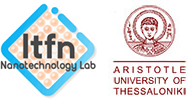 |
Nanotechnology Lab LTFN Aristotle University of Thessaloniki, Greece (Project Coordinator) www.ltfn.gr |
 |
University of Surrey, UK www.surrey.ac.uk |
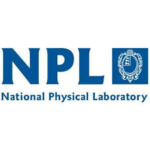 |
National Physical Laboratory, UK www.npl.co.uk |
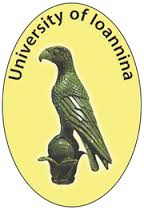 |
University of Ioannina, Greece www.uoi.gr |
 |
Fluxim, Switzerland www.fluxim.com |
| APEVA, Germany www.apeva.de |
|
| Granta Design, UK www.grantadesign.com |
|
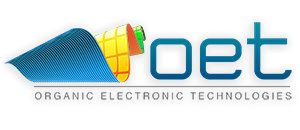 |
Organic Electronic Technologies, Greece www.oe-technologies.com |
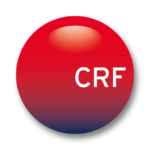 |
Centro Ricerche FIAT, Italy www.crf.it |
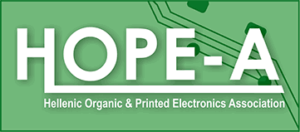 |
Hellenic Organic & Printed Electronics Association, Greece www.hope-a.com |
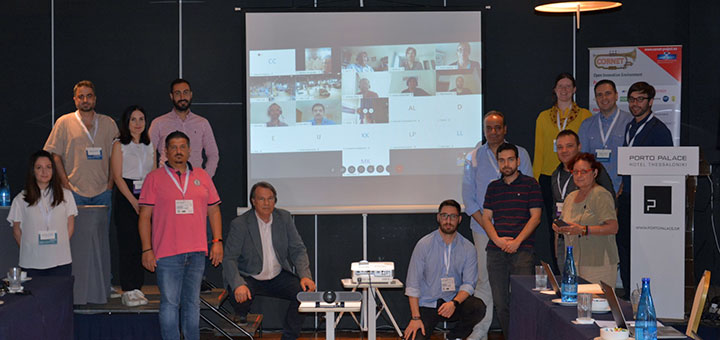 Live+Virtual M30 CORNET Consortium Meeting that took place at 5 July 2020 in Thessaloniki, Greece in the framework of the NANOTEXNOLOGY 2020 (www.nanotexnology.com)
Live+Virtual M30 CORNET Consortium Meeting that took place at 5 July 2020 in Thessaloniki, Greece in the framework of the NANOTEXNOLOGY 2020 (www.nanotexnology.com)
Press Release Preparation: LTFN/AUTh, HOPE-A
Acknowledgements
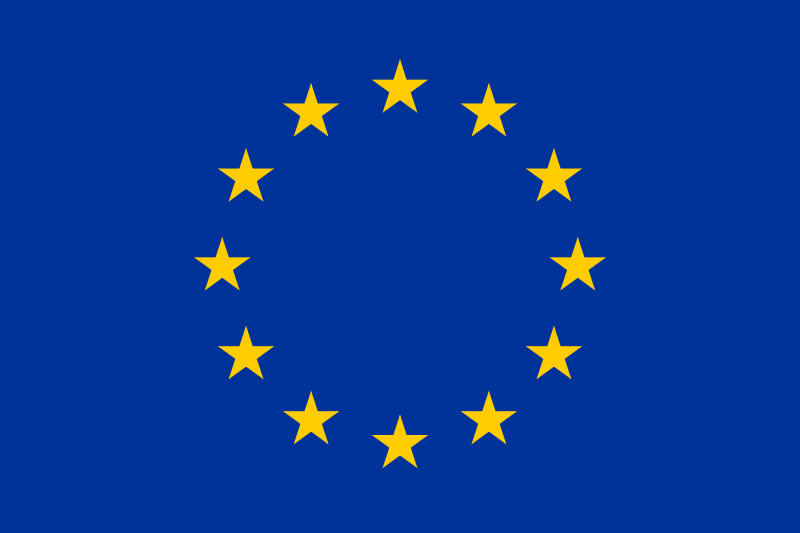 |
This project has received funding from the European Union’s Horizon 2020 research and innovation programme under grant agreement No 760949 |
The 30M Consortium meeting of the European CORNET program took place on 05.07.2020, in the framework of NANOTEXNOLOGY 2020. During this meeting, in which all project partners participated either Live or Virtual, the progress of the planned activities during the last semester but also the overall progress of the project as well as the next steps until the end of the project were presented.
For more information about the Project: www.cornet-project.eu
For more information about Cornet Press Release: https://bit.ly/32XY2Zh

NANOTEXNOLOGY OET & ΣΥΝΔΕΣΜΟΣ ΕΛΛΗΝΙΚΩΝ ΕΠΙΧΕΙΡΗΣΕΩΝ
15/07/20 www.livelagadas.gr
Έντονο ενδιαφέρον για τις ελληνικές καινοτομίες. Ο Σύνδεσμος Ελληνικών Επιχειρήσεων Οργανικών Ηλεκτρονικών στο NANOTEXNOLOGY 2020
13/07/20 www.avatonpress.gr
Nanotexnology 2020: Έντονο ενδιαφέρον για τις ελληνικές καινοτομίες
13/07/20 www.thermisnews.gr
Nanotexnology 2020: Εντυπωσιακές οι συμμετοχές στο διεθνές virtual και live πολυσυνέδριο
13/07/20 www.thesstoday.gr
HOPE-A ΕΛΠΙΔΟΦΟΡΟ ΚΑΙΝΟΤΟΜΟ ΟΙΚΟΣΥΣΤΗΜΑ ΕΛΛΗΝΙΚΩΝ ΕΠΙΧΕΙΡΗΣΕΩΝ
10/07/20 www.thinkfree.gr
Θεσσαλονίκη: Έρχεται η «έξυπνη» στάση λεωφορείων! (Φωτ.)
09/07/20 www.makthes.gr
ΚΑΙΝΟΤΟΜΟ ΟΙΚΟΣΥΣΤΗΜΑ ΕΠΙΧΕΙΡΗΣΕΩΝ ΠΑΡΟΥΣΙΑΣΤΗΚΕ ΣΤΟ NANOTECHNOLOGY
09/07/20 www.voria.gr
Θεσσαλονίκη: Ξαπλώστρα που φορτίζει κινητά – Η έξυπνη στάση (ΦΩΤΟ + VIDEO)
07/07/20 www.typosthes.gr
Zέρβας και Δανιηλίδης στο Διεθνές Συνέδριο Νανοτεχνολογίας 2020 (Φωτ.)
07/07/20 www.makthes.gr
Νανοτεχνολογία ΑΠΘ: Αντισηπτικό αδρανοποιεί τον κορονοϊό
07/07/20 www.arthro.gr
Ο Κωνσταντίνος Ζέρβας στο Nanotexnology 2020 (ΦΩΤΟ-ΒΙΝΤΕΟ)
07/07/20 www.thesstoday.gr
Μια εντυπωσιακή έκθεση νανοτεχνολογίας ξεκινά στη Θεσσαλονίκη
07/07/20 www.parallaximag.gr
Εξυπνη σταση με οργανικα φ/β, «πρασινη» ξαπλωστρα θαλασσης και ηλεκτροκινητο made in Θεσσαλονικη (φωτο)
07/07/20 www.greenagenda.gr
Κ.Ζέρβας και Σ. Δανιηλίδης στην Έκθεση NANOTEXNOLOGY 2020
07/07/20 www.thessnews.gr
Nanotexnology: Τα καινοτόμα προϊόντα που εντυπωσίασαν Ζέρβα - Δανιηλίδη (VIDEO)
07/07/20 www.typosthes.gr
Ζέρβας και Δανιηλίδης στο Nanotexnology 2020 (ΦΩΤΟ+VIDEO)
07/07/20 www.grtimes.gr
Κορονοϊός: Επιστήμονες του ΑΠΘ δημιούργησαν καλλυντικό σπρέι που τον αδρανοποιεί
07/07/20 www.fumara.gr
Νανοτεχνολογία ΑΠΘ: Αντισηπτικό αδρανοποιεί τον κορονοϊό
07/07/20 www.ethnos.gr
ΘΕΣΣΑΛΟΝΙΚΗ - NANOTEXNOLOGY: ΣΠΡΕΙ ΧΕΡΙΩΝ ΑΔΡΑΝΟΠΟΙΕΙ ΤΟΝ ΚΟΡΩΝΟΪΟ
07/07/20 www.voria.gr
Live και εικονικό το επιστημονικό πολυγεγονός Nanotexnology 2020
06/07/20 www.atlastv.gr
Καλλυντικό σπρέι χεριών αδρανοποιεί τον κορονοϊό με τη χρήση νανοτεχνολογίας
06/07/20 www.news247.gr
Θεσσαλονίκη: Δημιούργησαν καλλυντικό σπρέι που αδρανοποιεί τον κορωνοϊό
06/07/20 www.pronews.gr
Κοροναϊός: Σπρέι χεριών που αδρανοποιεί τον ιό δημιουργήθηκε από το ΑΠΘ
06/07/20 www.tanea.gr
Nanotexnology 2020: Καλλυντικό σπρέι χεριών κατά του κορωνοϊού με τη χρήση νανοτεχνολογίας
06/07/20 www.cityportal.gr
[CNN Greece]: Κορωνοϊός: Σπρέι χεριών που αδρανοποιεί τον ιό δημιουργήθηκε από το ΑΠΘ
06/07/20 www.multi-news.gr
Αντισηπτικό καλλυντικό σπρέι χεριών κατά του κορονοϊού με τη χρήση νανοτεχνολογίας
06/07/20 www.elnews.gr
Κοροναϊός: Σπρέι χεριών που αδρανοποιεί τον ιό δημιουργήθηκε από το ΑΠΘ
06/07/20 www.in.gr
Καλλυντικό σπρέι χεριών κατά του κορονοϊού με τη χρήση νανοτεχνολογίας
06/07/20 www.amna.gr
Θεσσαλονίκη- Nanotexnology 2020: Έκθεση καινοτόμων προϊόντων
06/07/20 www.polispost.com
Live και virtual απο τη Θεσσαλονικη το Nanotexnology 2020!
06/07/20 www.e-magazino.gr
Live και εικονικό το επιστημονικό πολυγεγονός Nanotexnology 2020
06/07/20 www.amna.gr
Αρχίζει σήμερα (4/7) το NANOTEXNOLOGY 2020 στη Θεσσαλονίκη
04/07/20 www.metrosport.gr
Ξεκινά σήμερα το NANOTEXNOLOGY 2020 με επίκεντρο τη Θεσσαλονίκη
04/07/20 www.thestival.gr
Θεσσαλονίκη: Ξεκινά αύριο το NANOTEXNOLOGY 2020
03/07/20 www.makthes.gr
Nanotexnology 2020 Expo: το μεγαλύτερο επιστημονικό γεγονός στη ΝΑ Ευρώπη, πραγματοποιείται VIRTUAL & LIVE με επίκεντρο τη Θεσσαλονίκη
03/07/20 www.avatonpress.gr
Νanotexnology 2020: Έρχεται στη Θεσσαλονίκη στης 4 Ιουλίου
02/07/20 www.tb-addicts.com
Όλα τα επιτεύγματα της νανοτεχνολογίας σε Έκθεση στη Θεσσαλονίκη από το Σάββατο
02/07/20 www.boreiosellas.gr
Στις 6-10/7 η έκθεση Nanotechnology 2020
01/07/20 www.energypress.gr
Θεσσαλονίκη: Το μεγαλύτερο επιστημονικό γεγονός της ΝΑ Ευρώπης, το NANOTEXNOLOGY 2020 γίνεται VIRTUAL & LIVE
01/07/20 www.vimapress.gr
Θεσσαλονίκη: Το μεγαλύτερο επιστημονικό γεγονός της ΝΑ Ευρώπης, το NANOTEXNOLOGY 2020 γίνεται VIRTUAL & LIVE
01/07/20 www.1069.gr
NANOTEXNOLOGY 2020 EXPO
01/07/20 www.volvipress.gr
Σύνδεσμος Ελληνικών Επιχειρήσεων Οργανικών Ηλεκτρονικών και Εκτυπωμένης Ενέργειας: Το μέλλον στην Ευρώπη είναι ψηφιακό
08/07/20 www.thinkfree.gr
Nanotexnology 2020: Εξυπνα προϊόντα από το... μέλλον με τεχνολογία made in Greece
30/06/20 www.ethnos.gr
Presentation & Promotion of the REALNANO and CORNET projects as well as the CORNET OIE Platform took place in the frame of 13th International Symposium on Flexible Organic Electronics during NANOTEXNOLOGY 2020 multi event! Moreover, at NANOTEXNOLOGY 2020 Business Forum, REALNANO’s and CORNET's objectives were introduced by HOPE-A.

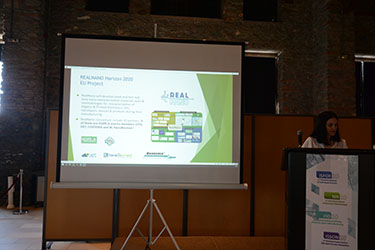
For more information about RealNano Project: www.realnano-project.eu
For more information about Cornet Project: www.cornet-project.eu
For more information about Cornet OIE Platform: www.cornet-project.eu/oie
Let’s rethink plastic!
FlexFunction2Sustain – Open Innovation Test Bed launched on 1st April to boost innovations for sustainable plastic and paper products to reach the market faster.
On April 1st, the EU-funded initiative FlexFunction2Sustain was launched. The project, financed by the European Union’s Horizon 2020 research and innovation programme, will support Plastics and Paper Processing Industry in overcoming environmental challenges while entering the digital age. 19 European partners unify their competencies, practical and business development expertise and technical infrastructure to provide a wide access to innovative solutions through a sustainable open innovation ecosystem. This Open Innovation Test Bed for nano-functionalized plastic and paper surfaces and membranes will support innovative SMEs and industries by drastically reducing the time-to-market for novel concepts, ideas and products.
Plastic and paper based materials are used in a wide range of daily life products. Applications represent well established multi-billion Euro markets (e. g. food and pharma packaging, furniture surfaces, membrane-based filter systems, medical products etc.). New business opportunities will arise from replacing glass and metal by nano-functionalized plastic or paper surfaces in many products. That allows the reduction in weight and cost and gains in mechanical flexibility together with additional properties. Such properties include e. g. the blocking of water and oxygen permeation, surface conductivity, antimicrobial and anti-viral properties or chemical and corrosion resistance. State-of-the-art solutions often rely on composite or multi-layer materials. Such composites, however, have a major drawback with respect to their environmental footprint: they are neither fully recyclable nor compostable/degradable. Further, most plastic products are synthesized from mineral oil instead of renewable resources.
Many innovations come from the urgent need to reduce plastic waste in the world addressing novel polymer formulations (bio-based, bio-degradable) and novel product designs. However, high access barriers to pre-commercial material development, testing and certification facilities and pilot-production capabilities in Europe prevent StartUps, SMEs and Industries from commercially exploiting novel ideas in nanotechnology and advanced materials. Investors, although willing to support innovative solutions, lack the technical knowledge and the institutional capabilities for evaluating new ideas, products and business models of StartUps.
The EU-funded initiative FlexFunction2Sustain aims at overcoming these limitations (often referred to as “Valley of Death” between research and industry) by creating an Open Innovation Test Bed (OITB) for nano-functionalisation technologies that enable sustainable and smart plastics and paper based products. The OITB will provide users an easy access to holistic innovation boosting services through a single entry point. The OITB will support its customers in material and product design, in process and product development, in product verification and certification, with pilot and small series production services and with accessing new markets and business opportunities. Integrating all these services to a complete, all-round offer will substantially reduce the time and cost to progress through the innovation chain from an idea to a successful product.
FlexFunction2Sustain uniquely interconnects renowned Universities, Applied Research Organisations, and Companies offering pilot production services with Business Development, Networking and Intellectual Property Experts to support customers in any stage of the innovation chain. The consortium was assembled to improve competitiveness of Europe in the field of nano-functionalized materials, and to increase market share of European industries in the value chain of sustainable and smart plastic and paper related products.
FlexFunction2Sustain member facilities cover all major nano-functionalisation techniques available for plastic and paper surfaces. This includes a large portfolio of techniques for atmospheric pressure and vacuum thin film coating; micro- and nano-structuring of surfaces; printed electronics processing; and lamination and product integration. Pilot-scale facilities for testing novel polymer formulations and for verifying recyclability and bio-degradability of innovative products complete the offer. Finally, application verification and pre-certification test facilities for food and non-food packaging and anti-microbial and antiviral applications will accelerate market penetration of novel products in sensitive use scenarios.
FlexFunction2Sustain will align the technical facilities according to the needs of six industrial use cases, including i.e.:
Project coordinator Dr. John Fahlteich, Fraunhofer Institute for Organic Electronics, Electron Beam and Plasma Technology FEP, explains the unique potential of the ecosystem: "The strength of the FlexFunction2Sustain OITB is the unique cooperation between the research, technology and business development partners to set-up a combined offer of complementary services for boosting innovation. Customers will be able to gain access to a pan European innovation network through a single entry point without the need to speak multiple languages or to understand the law in multiple countries. This model allows the most appropriate technology selection and shaping among whole technological portfolio available in the EU. Users can expect optimum cost, time-to-market, reliability and performance."
The services of the OITB will be made available to the industry though a novel “single entry point” company that will be created before Summer 2021. The company will act as general contractor for the customer managing all services and actions of the OITB for highest service quality and efficiency. Through this company, the customer will gain access to services from partners in more than 10 different EU countries in either its native language or English. The single entry point will eliminate the need to negotiate multiple service contracts in different countries and to organize material transfers and information exchange between different suppliers. Strategic partnerships with regional agents will ensure access in the whole European Market.
To accelerate the uptake of the OITB services, FlexFunction2Sustain will launch two competitive calls for up to 20 pre-commercial SME-targeted pilot cases. The first call will open in January 2022 and will invite SMEs to submit innovation project proposals to FlexFunction2Sustain. The best rated projects will receive discounted services from the OITB.
The FlexFunction2Sustain ecosystem will support innovative SMEs and industries by providing an expert support from an early development stage to the optimised transformation of prototypes into valuable and innovative products. The members of the consortium are convinced that only the complex response of this nature will provide the necessary service portfolio to create sustainable new products and business cases in the European Union.
The project FlexFunction2Sustain has started on 1st April 2020 and will run 48 months. The project has received funding from the European Union’s Horizon 2020 research and innovation programme under grant agreement No 862156.
FlexFunction2Sustain consortium consists of 19 European partners, including research organizations, universities and private companies: Fraunhofer Gesellschaft (Fraunhofer Institute FEP, IAP und IVV), JOANNEUM RESEARCH Forschungsgesellschaft mbH, Aristotle University Thessaloniki, Coatema Coating Machinery GmbH, AMCOR Group GmbH, Gesellschaft für Mittelstandsförderung mbH, Organic Electronics Technologies P.C., 24IP Law Group France Sarl., BL Nanobiomed P.C., IPC Centre Technique Industriel de la Plasturgie et des Composites, INL, Hellenic Organic and Printed Electronics Association HOPE-A, I3Membrane GmbH, HUECK FOLIEN GmbH, Centro Ricerche Fiat S.c.p.A., Procter & Gamble Service GmbH, SONAE MC – Serviços Partilhados S.A., Capri Sun GmbH, AMIRES s.r.o.
The project coordinator is the Fraunhofer Institute for Organic Electronics, Electron Beam and Plasma Technology FEP, Dresden, Germany.
More information about the project can be found at www.flexfunction2sustain.eu (full version available in June 2020).

In 2015, packaging materials contributed 141 million tons to the global plastic waste generation. FlexFunction2Sustain will promote technologies and innovations to replace state-of-the-art packaging by sustainable solutions for a substantial reduction of plastic waste in the world.
© Fraunhofer FEP, Photographer: Jan Hosan
Picture in printable resolution: www.fep.fraunhofer.de/press
Πρόσκληση σε Τακτική Γενική Συνέλευση των μελών του Σωματείου, βάση του άρθρου 23.3 του καταστατικού, στις 29/6/2020 ημέρα Δευτέρα στο Porto Palace Hotel (28ης Οκτωβρίου 65, Θεσσαλονίκη 546 28) ώρα 17.00. Σε περίπτωση μη απαρτίας κατά την πρώτη σύγκλιση, εάν δηλαδή δεν παρίσταται σε αυτήν το ένα δεύτερο (1/2) τουλάχιστον του όλου αριθμού των οικονομικά τακτοποιημένων τακτικών μελών του Σωματείου (άρθρο 24.1), συνέρχεται χωρίς άλλη διατύπωση η Γενική Συνέλευση στον ίδιο τόπο, την ίδια μέρα και ώρα της επόμενης εβδομάδας 06/07/2020 ημέρα Δευτέρα ώρα 17.00 κατά την οποία είναι αρκετός οποιοσδήποτε αριθμός παρόντων οικονομικά τακτοποιημένων τακτικών μελών (άρθρο 24.2).
Θέματα της Γενικής Συνέλευσης:
Οικονομική Τακτοποίηση:
Ενημερώνονται όλα τα μέλη πως δικαίωμα συμμετοχής στη Γενική Συνέλευση έχουν τα οικονομικά τακτοποιημένα μέλη, γι’ αυτό παρακαλείστε να τακτοποιήσετε τις οικονομικές σας διαφορές. Για διευκόλυνσή των μελών και με γνώση της δύσκολης περιόδου που διανύουμε, το Διοικητικό Συμβούλιο αποφάσισε την τροποποίηση του άρθρου 7 ως εξής:
Α. Για την εγγραφή:
Β. Ετήσια συνδρομή:
Ειδικά:
Οικονομικά τακτοποιημένα θα θεωρηθούν μέλη που θα πληρώσουν την εγγραφή και τη συνδρομή για το έτος 2019.
Παρακαλούμε να τακτοποιήσετε τις οικονομικές σας υποχρεώσεις προκειμένου να συμμετάσχετε στην Γενική Συνέλευση. Οι πληρωμές γίνονται στον λογαριαμό του HOPE-A στην Τράπεζα Πειραιώς με IBAN: GR90 0172 2730 0052 7308 3186 504 (παρακαλούμε στείλτε το αποδεικτικό πληρωμής).
Μπορείτε να κατεβάσετε την πρόσκληση από εδώ.
Το συνέδριο της Νανοτεχνολογίας της ΝοτιοΑνατολικής Ευρώπης τον Ιούλιο στη Θεσσαλονικη
Το σημαντικότερο πολυσυνέδριο στον τομέα της Νανοτεχνολογίας και των Νανοεπιστημών, στη ΝΑ Ευρώπη, το NANOTEXNOLOGY 2020, ξεκινά το Σάββατο 4 Ιουλίου με επίκεντρο τη Θεσσαλονίκη. Επιστήμονες και μηχανικοί από όλο τον κόσμο, πανεπιστημιακά ιδρύματα, ερευνητικά κέντρα, εταιρείες τεχνολογικής καινοτομίας, και επιχειρήσεις συντονίζονται σε ένα μεγάλο επιστημονικό και τεχνολογικό γεγονός που για πρώτη φορά εξελίσσεται ταυτόχρονα virtual και live.
Διαβάστε περισσότερα εδώ.
Πηγή: 17/06/20 cityportal.gr